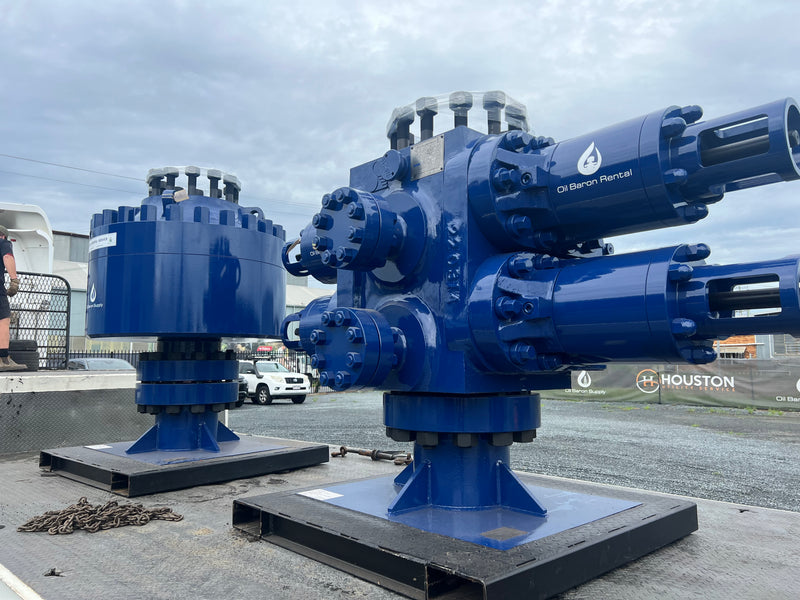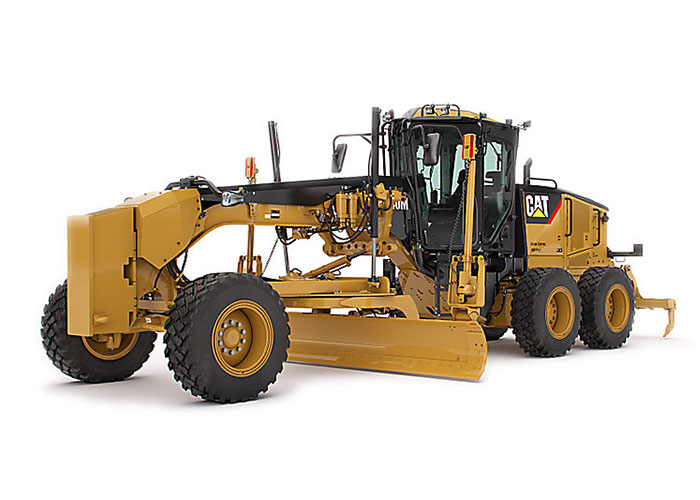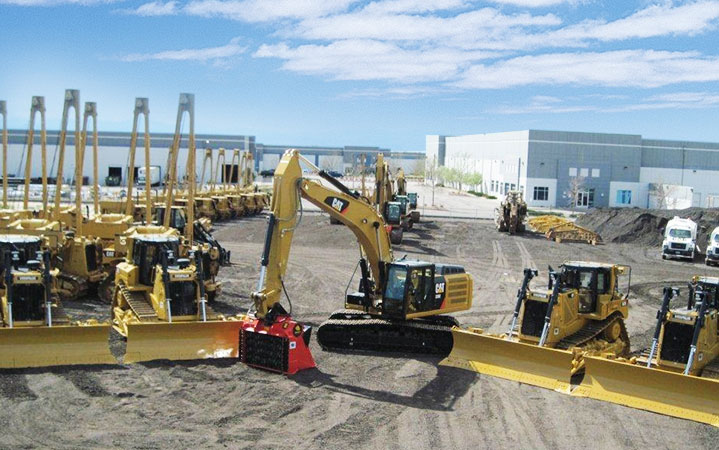A Comprehensive Overview to the Various Kinds Of Oil Field Equipment and Pipeline Equipment Available
The oil and gas sector depends greatly on specific tools for efficient extraction and transportation. Numerous types of equipment, from piercing rigs to tank, play essential functions in this intricate procedure. Each item of tools offers unique functions that add to general operational success. Recognizing these parts is essential for any individual associated with the industry. As the industry advances, so too do the technologies that support it. What advancements are on the perspective?

Drilling Rigs: The Foundation of Oil Exploration
Drilling rigs act as the important equipment in the domain of oil expedition, enabling companies to gain access to hydrocarbon gets hidden deep under the Earth's surface. These rigs are available in numerous types, including land rigs, offshore rigs, and mobile systems, each developed to operate in specific environments. Furnished with sophisticated technology, drilling rigs can permeate geological developments with accuracy, making certain reliable resource removal. The architectural stability and functional capabilities of these rigs are critical, as they should withstand severe conditions and significant pressures. Furthermore, the selection of an exploration rig affects the total job price and timeline, making it a crucial factor to consider for oil companies looking for to optimize their expedition initiatives and make best use of productivity in their operations.
Pumps: Essential for Fluid Movement
In the oil removal process, the duty of pumps is substantial, helping with the activity of fluids throughout numerous phases of production. Pumps are necessary for carrying petroleum, water, and various other liquids from below ground tanks to the surface area and after that via pipes to refineries. They can be found in numerous types, including centrifugal, favorable displacement, and completely submersible pumps, each offering specific functions based upon the fluid characteristics and functional requirements. Centrifugal pumps are generally made use of for their efficiency in high-flow applications, while favorable displacement pumps master dealing with viscous fluids. The choice of pump influences total effectiveness, operational safety and security, and maintenance expenses. Proper option and upkeep of pumps are vital for maximizing production and decreasing downtime in oil area operations.
Valves: Managing Flow and Pressure

Shutoffs play an important role in handling the flow and pressure of liquids within oil areas and pipes. Numerous sorts of shutoffs serve unique applications, each created to fulfill certain features basic for reliable operation - Superior Rentals reviews. Comprehending the features and uses these shutoffs is essential for optimizing system performance and safety
Kinds of Valves
Necessary parts in oil field operations, shutoffs play an essential role in controlling the circulation and stress of liquids within pipes and tools. Numerous kinds of shutoffs are made use of to fulfill the varied demands of oil and gas manufacturing. Common types consist of entrance valves, which give a straight-line flow and minimal stress drop; globe valves, known for their throttling capabilities; and sphere valves, identified for their quick on/off control. Additionally, check shutoffs stop backflow, while butterfly shutoffs provide a light-weight service for regulating circulation. Each valve type is designed with specific products and arrangements to hold up against the rough conditions frequently found in oil areas, making sure reliability and performance in operations. Understanding these kinds is vital for effective system monitoring.
Valve Applications and Functions
While various kinds of valves serve unique purposes, their key applications focus on regulating circulation and pressure within oil and gas systems. Shutoffs such as entrance, world, and sphere shutoffs regulate liquid activity, making sure peak performance and safety and security. Gate valves are commonly used for on/off control, offering marginal circulation resistance. Globe shutoffs, on the other hand, deal precise circulation law, making them appropriate for strangling applications. Ball valves are preferred for their quick procedure and limited sealing capabilities. Furthermore, stress safety valve are critical for stopping system overpressure, guarding equipment stability. On the whole, the suitable option and application of shutoffs enhance operational effectiveness, making certain the reputable transport of oil and gas with pipes and processing centers.
Compressors: Enhancing Gas Transport
Compressors play an essential function in the reliable transport of natural gas, guaranteeing that it moves efficiently with pipes over fars away. These gadgets boost the stress of gas, permitting it to overcome friction and elevation changes within the pipeline system. Additionally, compressors help with the harmonizing of supply and need, accommodating fluctuations in consumption and production rates. Various types of compressors are employed in the market, including centrifugal, reciprocating, and rotary screw compressors, each offering distinct advantages based upon the functional requirements. Regular upkeep of these compressors is important to make the most of effectiveness and reduce downtime, inevitably adding to a reputable gas transportation network. Their essential feature underscores the value of compressors in the total oil and gas facilities.
Storage Tanks: Safe and Effective Liquid Management
Reliable transportation of all-natural gas relies on numerous support group, among which is the appropriate monitoring of storage space containers. These storage tanks play an important function in securely having liquids, guaranteeing that operational performance is preserved while minimizing ecological threats. Created from resilient products, they are made to stand up to high pressures and corrosive components. Appropriately sized and tactically situated, storage space tanks facilitate the smooth circulation of gas and other fluids, preventing bottlenecks in supply chains. Normal maintenance and surveillance are vital to spot leakages or architectural concerns, promoting safety and conformity with regulative standards. Eventually, the reliable monitoring of tank is important for the total integrity gas line replacement and dependability of the oil and gas sector's liquid handling systems.
Pipeline Solutions: Facilities for Transport
Pipeline systems act as the backbone of the oil and gas industry, facilitating the reliable transportation of hydrocarbons over large distances. These systems include numerous components, including pipes, shutoffs, pumps, and compressors, all diligently created to assure smooth flow. The materials utilized in pipeline building, usually steel or high-density polyethylene, are selected for find out here sturdiness and resistance to corrosion. Pipeline networks can span throughout land and water, attaching production websites to refineries and distribution facilities. In addition, advanced modern technology makes it possible for real-time monitoring of circulation rates and pressure levels, enhancing operational effectiveness. The critical positioning of these pipelines lessens ecological impact while optimizing resource accessibility, consequently playing a necessary duty in conference power needs globally.
Security Equipment: Making Certain Employee and Environmental Management
The operation of pipeline systems, while vital for energy transport, additionally provides considerable safety difficulties for employees and the setting. Safety equipment plays a substantial duty in mitigating these risks. Personal safety tools (PPE) such as helmets, gloves, and non-slip shoes safeguards employees from physical hazards. Additionally, gas discovery systems monitor for leaks, making sure that dangerous compounds do not present a danger to workers or the surrounding ecological community. Emergency situation shutdown systems are vital for promptly halting operations during a situation, protecting against prospective catastrophes. Spill containment products, consisting of absorbents and obstacles, are essential for minimizing ecological impact. In general, purchasing all-encompassing safety and security equipment is critical for preserving gas line near me functional honesty and securing both employees and the setting in the oil and gas market.

Often Asked Questions
How Do I Pick the Right Oil Field Equipment for My Job?
Selecting the right oil area equipment includes examining project specifications, budget restrictions, and operational demands. Think about variables such as tools dependability, compatibility with existing systems, and the distributor's credibility to ensure peak efficiency and safety and security.
What Are the Upkeep Requirements for Oil Field Equipment?
Maintenance demands for oil area tools include normal evaluations, lubrication, and timely repairs. Operators ought to likewise follow supplier standards, display performance metrics, and assurance conformity with security regulations to boost long life and effectiveness.

How Can I Ensure Compliance With Environmental Rules?
To assure conformity with ecological laws, business should conduct normal audits, implement best practices, purchase training, preserve proper paperwork, and stay updated on regulation (Superior Oilfield Rentals Texas). Collaboration with ecological agencies can likewise improve adherence to policies
What Is the Typical Life-span of Pipeline Equipment?
The average lifespan of pipeline tools normally varies from 20 to half a century, depending on elements such as material quality, ecological problems, and upkeep practices. Normal assessments can considerably influence longevity and operational performance.
Just how Do I Securely Carry Oil Field Equipment to Remote Locations?
Carrying oil area equipment to remote places requires cautious preparation, consisting of path evaluation, safeguarding licenses, making use of appropriate automobiles, and guaranteeing safety procedures are adhered to. Appropriate training and communication amongst crews are essential for successful transport.